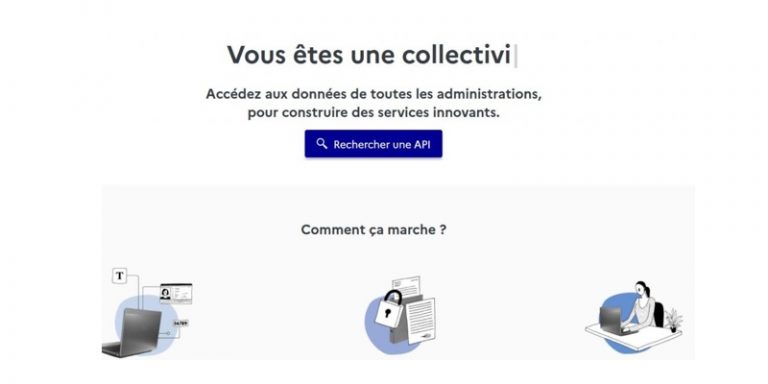
In a bid to modernise access to data, the French Legal and Administrative Information Directorate (DILA) has announced that it will open up the data on its economic sites via new application programming interfaces (APIs). Following a circular of the Prime Minister of 27 April 2021 on the public policy of data, algorithms and source codes, highlights the importance of thistype of opening and reuse of public data.
The announced opening concerns the civil and commercial announcements of the BODDAC (33 million published announcements), the announcements of associations and company foundations and their annual accounts filings (4.9 million announcements), the public procurement announcements of the BOAMP (3.2 million announcements) as well as the legal and mandatory announcements of the BALO (128,000 announcements).
These data are made available to be useful to public decision-makers as well as to citizens and private actors, whether for the management and efficiency of public action or for the purposes of transparency and democratic debate.
Four APIs to modernize data collection
To modernise the collection, enrichment, publication and use of data from the various legal announcement media it publishes, DILA has encouraged the re-use of its public information through collaborative innovation since 2014.
In June 2021, DILA is adding new ways to access public data. To do so, it relies on application programming interfaces (APIs) that allow free access to mass data and large-scale functionalities.
Anyone can now quickly query economic data, using specific filters and criteria, and cross-reference these data for reports or analyses on public procurement or the life of companies and associations. These data can be downloaded in different formats such as Excel, CSV or JSON. For all structures wishing to industrialize and automate recurring searches, it is possible to set up a program that integrates these APIs. There are four DILA APIs (association data are on the same interface as association accounts).
BOAMP data
The BOAMP broadcasts :
- notices of public calls for tender and the results of contracts of the State, the army, local authorities and their public establishments;
- it also publishes public-private partnership contracts and concession notices.
BALO data
Since 1907, the BALO has listed all information relating to companies making public offerings and to banking and financial institutions, such as financial transactions, notices of general meetings and annual accounts.
BODACC data
The BODACC ensures the publication of acts registered in the trade and companies register. It publishes the notices provided for in the Commercial Code and the legislative and regulatory texts (sales and transfers, registrations, creation of establishments, modifications and deletions of natural or legal persons registered in the Trade and Companies Register, notices of account filings, etc.).
Associations data
The Associations dataset (JOAFE, Journal officiel associations et fondations d’entreprise) publishes declarations of creation, modification or dissolution of associations governed by the law of 1901 since the beginning and extracts of court decisions relating to the associative field.
The data set Comptes associations
The Association accounts dataset publishes the annual accounts of associations, corporate foundations, partnership foundations, national professional associations and military endowments.
In accordance with the document “Warning on personal data”, the provision by DILA of datasets that may contain personal data does not exempt the reuser from compliance with the “Data Protection Act”.
Through its action, DILA facilitates the management of public decision-makers, transparency for citizens, enables data to be used for economic purposes and provides new resources for economic and social innovation.
Translated from Open Data : la DILA modernise l’ouverture de ses données économiques via de nouvelles APIs









